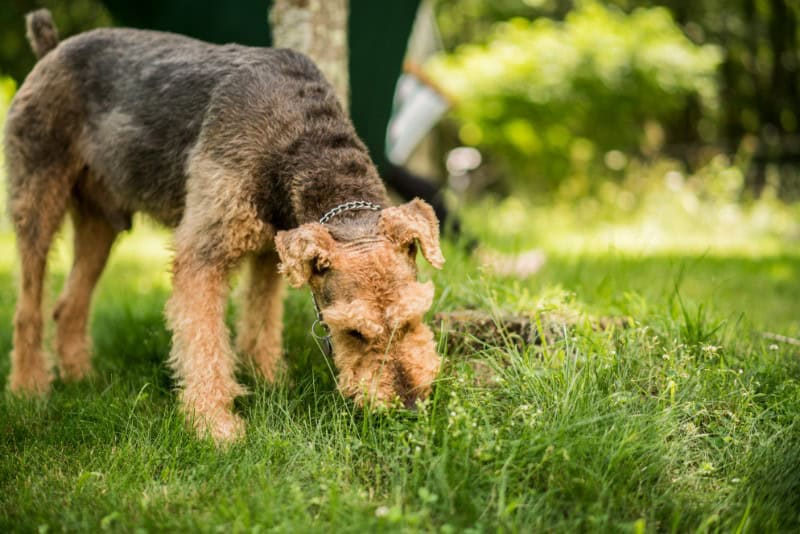Outdoor Pet Toxins To Watch Out For

Spring is in the air, and thoughts are turning towards all things green – the lawn, the garden, the shrubs and flowers, and all the fulfilling work that goes along with keeping those living things beautiful. Unfortunately, encouraging new growth while keeping unwanted plants and insects at bay often involves the use of chemicals that can put pets at risk.
The entire month of March is dedicated to poison awareness, and the Rocklin Ranch Veterinary Hospital team wants to make sure pet owners are aware of the most common outdoor pet toxins, and know how to protect their pets.
Outdoor Pet Toxins
Common lawn and garden pet toxins include:
Herbicides and lawn chemicals – Certain classes of herbicides, slug and snail bait, and other lawn chemicals can cause serious side effects for pets, including vomiting, diarrhea, tremors, seizures, and death. There are many safe and natural alternatives available for protecting your garden and landscaping, but if you must use chemicals on your lawn make sure pets, food and water bowls, and toys are all inside during application and drying times.
Bone meal/blood meal – Due to the high nitrogen and iron content of blood meal, ingestion can lead to vomiting, diarrhea, and pancreatitis. Consuming bone meal (often very tempting for pets as it is made from ground animal bone) can lead to intestinal blockage.
Compost – Compost can contain items that may sicken your pet, such as coffee grounds, moldy food, or hazardous food items. Keep compost bins securely covered at all times to prevent a disaster.
Cocoa mulch – This type of mulch is made from the byproducts of chocolate production, and the rich brown color and enticing aroma make it a popular choice for homeowners. It’s popular among the four-legged set as well, but cocoa mulch contains much of the same compounds that make chocolate toxic for pets.
Antifreeze Dangers
Antifreeze is one of the most dangerous substances your pet is likely to encounter in the garage, driveways, and roads. Pets are attracted to the sweet smell and taste, but ingesting even a small amount can be fatal. Always keep antifreeze containers tightly capped and stored out of your pet’s reach, clean up any leaks or spills immediately, and don’t let your pet investigate puddles while out and about.
If Your Pet Is Exposed
Any exposure to outdoor pet toxins should be considered a medical emergency for your furry friend. If you think your pet has ingested something poisonous, keep the following in mind:
- Act quickly – Time is of the essence when it comes to exposure to pet poisoning. Do not wait to seek treatment for your pet.
- Save the packaging – Whenever possible, save the packaging of anything your pet may have gotten into. Knowing which specific chemicals your pet has been exposed to can help us determine the proper course of action quickly.
- Seek help – Call us right away for instructions on how to proceed or to let us know you’re bringing your pet in, we are open 7 days a week. If an emergency occurs outside our regular business hours, our website will direct you to nearby emergency veterinary clinics.
Decreasing your pet’s exposure to toxins is a matter of awareness and prevention. Please don’t hesitate to contact our staff with any questions or concerns you have regarding your pet.

